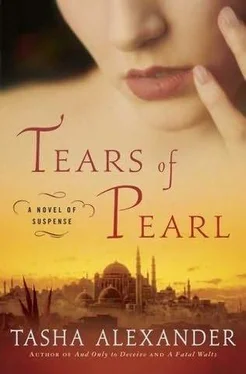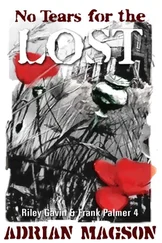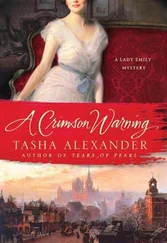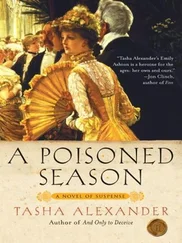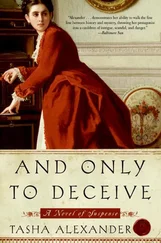“Your wife is an investigator as well?” Mr. Sutcliffe’s eyebrows shot upward.
“She’s solved three murders,” Colin said. His words were true, but I’d not before acted on behalf of the government. I’d only helped friends—and myself—in dire times when there was no other option. My stomach flipped, excitement competing with nerves for my attention. After the work I’d done in Vienna the previous winter, he’d spoken to his superiors at Buckingham Palace about me, and they’d agreed that my skills might prove useful to the government in the future—but only if I was partnering with my husband, and only if the job could not be done in the absence of feminine assistance. I’m quite certain they were convinced no such circumstance would ever come to pass.
“I’m not sure that I approve. Not that I doubt your talents, Lady Emily, but I cannot ask that you endanger yourself.” The creases on Sir Richard’s brow deepened. “But I suppose I have no choice but to graciously accept any assistance you can offer. I’ve now lost my daughter twice. I cannot let this insult go unpunished.”
3 April 1892
Darnley House, Kent
My Dearest Emily,
I hope this letter finds you lost in the throes of connubial bliss. It was such a delight to see you and Colin—without question the best diversion I’ve had in months. Would that you’d been able to stay longer! I do, though, completely understand your desire to remove yourself from your parents’ house, and I cannot be stern with you for having abandoned me. In fact, after the service you provided Robert and me in Vienna, I could hardly be stern with you on any subject. I’m not precisely sure what etiquette demands as the proper thanks for rescuing one’s husband from prison and a charge of murder. Have you any suggestions?
I still can hardly believe Robert was ever suspected of such a crime—how anyone could think my dear husband would kill his own mentor is utterly beyond my comprehension. It was terrifying to see how quickly those around him abandoned him. If you hadn’t been willing to pursue the investigation with such vigor, I’m quite certain I’d be swathed in mourning.
I must confess that at present it feels as if I’ll never be able to leave your parents. Robert’s business still keeps him in town, and your mother refuses to let me return alone to our estate. I appreciate her generous concern, but must admit that confinement with her is like being violently tamed by an unstoppable force of nature. I do fear for you, Emily, when your own time comes. There’s not enough paper in England for me to list all she’s doing to ensure I have a boy, but I can tell you that I’m quite tired of having beef broth forced on me six times a day.
Every corridor and nook in this house reminds me of the pleasant days you and I spent together as children. Just this morning I pried open that loose board in the solarium floor—the one we begged the butler not to have fixed—and found the box we’d hidden there long ago. Do you remember? In it there’s a copy of Candide, a badly written statement pertaining to the outrage we felt at not being allowed to pursue employment as pirates, and a splendid collection of small rocks. All things considered, I do believe we’ve done well to abandon our thoughts of pirating.
Give Colin my best, and implore him to take care of you. I don’t want to hear any stories of you being embroiled in intrigue while you’re away.
I am, your most devoted friend, etc.,
Ivy Brandon
“Madam?” Meg opened our bedroom door a few inches after knocking. “An urgent message has come for you from the palace.”
I pulled myself away from the perfect comfort of Colin’s arms and sat up. The room was dark—tightly fit shutters keeping out the sun—and our silk quilted duvet and cotton blankets a perfect pool of soft warmth. The furniture, neither particularly Western nor Eastern, had simple, pleasing lines, and there were niches, lined with flower-painted tiles, cut out from the wall for candles on either side of the low mahogany bed. “The queen? Come in, Meg.”
“No, madam. Not Buckingham Palace. Top—Top—Oh, I don’t know that I could ever figure out how to say it.” She shrugged and handed me an envelope heavy with the scent of lavender.
“Topkapı Sarayı .” I leaned back as Colin raised a mountain of bright silk-covered pillows against the headboard. “A place undoubtedly full of exotic treasures, Meg. I’d love to see it, and you would, too.”
“Oh, madam, I’m not sure I’d want to go there. There’s a harem, you know. I might never come out.”
“I shan’t let the sultan claim you, Meg,” Colin said. “Without you here, Emily might force me to do her hair.”
“Thank you, sir.” Meg blushed, not looking at him, still embarrassed at finding him in my room. “Is there anything else you need?”
“No. We’ll be down for breakfast in another hour or so,” Colin said. She dipped a curtsy and left the room, closing the door firmly behind her.
“That long?” I kissed him. “What if I’m hungry before then?”
“I’ll try to keep you distracted.”
“You’d better.” I opened the envelope. “I can’t imagine the sultan using fragranced paper.”
“I can’t imagine the sultan writing to a European woman.”
“He’s very cultured,” I said. “And more Western than I’d expected. Surely you don’t doubt I could charm him?”
“Quite the contrary. But though he may be cultured, he’s a difficult man. Extremely paranoid—won’t allow electricity in the city because when someone explained to him how it works, he mistook ‘dynamo’ for ‘dynamite.’ ”
“Perhaps he’s overwhelmed. He is, after all, ruling an empire in an advanced state of decay—a situation that’s growing worse faster than expected. People accustomed to being in a position of strength often assume it will last. I often wonder about our own empire.”
“Britain is not in a state of decay at the moment,” he said. “But our way of life is a precarious one that must be protected with vigilance if we don’t want it to slip away. All of Europe will be affected if Turkey becomes more unstable—instability has a way of being contagious.”
“So we’re witnessing the decline and fall of the Ottomans?”
“Due in large part to the excessive and obscene spending of Abdül Hamit’s predecessors. They’ve done more palace building than prudent this century—and that went a long way to bankrupting the empire.”
“Why would anyone with Topkapı Sarayı at his disposal want another palace? I’ve never heard such exotic descriptions of a place.”
“It’s ordinary to anyone who lives in it, I’d imagine.”
“Not to the concubines when they first arrive and are prepared to meet the sultan. Only think how awestruck they must be to find themselves ensconced in such luxury.”
“Your imagination is running quite wild, Emily. At any rate, the sultan now lives at Yıldız, not Topkapı.”
I unfolded the paper I was holding. The letter was written in a confident, elegant hand. “This is from someone called Bezime. She says she’s Abdül Aziz’s mother. Who is Abdül Aziz?”
“He was sultan before Abdül Hamit’s brother, Murat.” Colin sat up, propping his pillows behind him. “And a master of excess, particularly after he visited Europe. I believe he had twenty-five hundred in his harem.”
“Twenty-five hundred?” I asked.
“The number does include both slaves and eunuchs as well as the concubines, wives, and children. Murat followed him to the throne but ruled for only three months or so. He was mentally unstable, completely unfit to rule an empire, a raging alcoholic. So he was deposed, and Abdül Hamit the Second succeeded him and agreed to a constitutional monarchy. The Year of Three Sultans, they called it.”
Читать дальше
